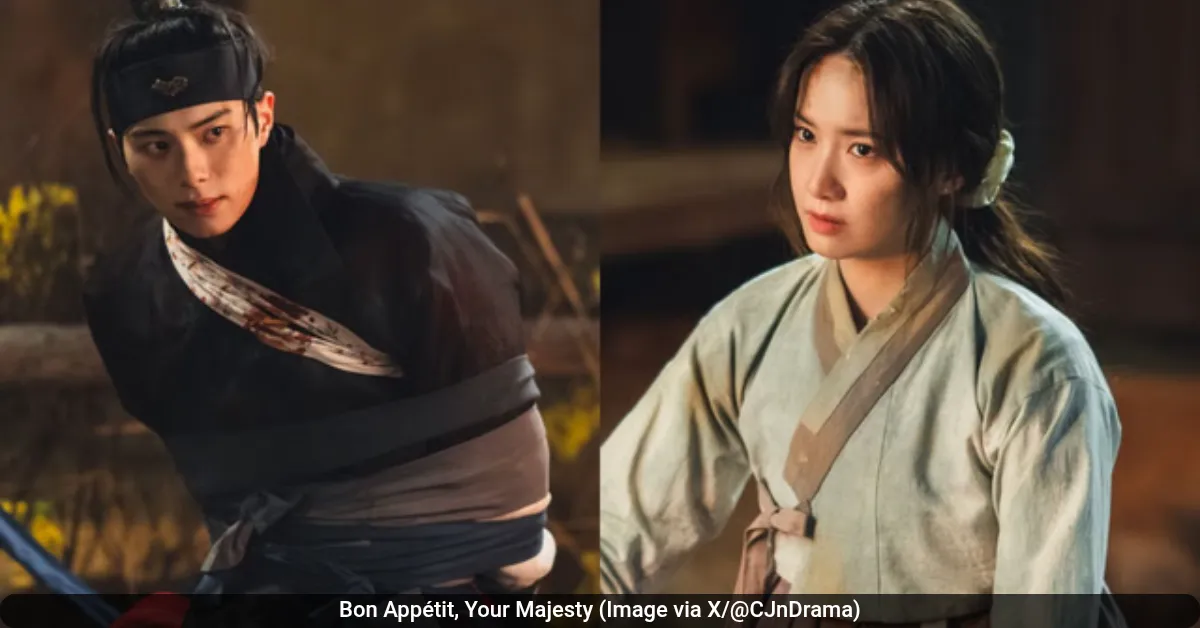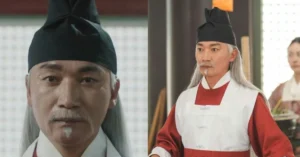Park Guk Jae, the writer of tvN’s popular drama Bon Appétit Your Majesty, has responded to accusations that the show misrepresents history. Some viewers have expressed that certain scenes feel too much like a Chinese drama, sparking intense online debate. The controversy mainly involves scenes showing the Joseon king seated beside a Ming Dynasty envoy and bowing to him.
Writer Park Guk Jae Explains Historical Sources
On September 19, Park Guk Jae shared a statement on social media addressing the criticism. He referred to Gukjo Oryeui (The Book of National Rites of the Early Joseon Dynasty), a state manual of court rituals compiled in 1474, as the main source for the drama’s portrayal.
Regarding the decision to seat King Lee Heon beside the Ming envoy, Park explained, “The section on guest etiquette in the text specifies that the envoy sits to the east, while the king sits to the west.” He added, “In Confucian ritual, the east holds a higher rank than the west. The Ming envoy represented the emperor, so his status was above that of the Joseon king.”
About the scene where the king bows to the envoy, Park clarified, “According to the manual, it was customary for the king to bow first when greeting an envoy.” He emphasized, “This was not a matter of sovereignty, but part of international protocol. The drama follows an official state text published less than 30 years before the era in which the story is set.”
Viewer Reactions and Criticism
Despite Park’s explanation, some viewers remain unsatisfied. They argue that the drama strays too far from historical records found in the Annals of King Sejong, which state that the king should sit on the throne while the envoy is seated below to the east. Others pointed out that while kings would kneel when receiving an imperial edict, there is no record of them bowing their heads to envoys.
The show has been accused of feeling like a Chinese drama due to these protocol depictions. Online comments include criticisms about the portrayal of Joseon’s relationship with the Ming Dynasty, with some viewers feeling it undermines the historical status of the Korean king.
Other Controversies Surrounding the Drama
This is not the first issue the drama has faced. Earlier in September, a Chinese voice actor involved in dubbing for the show made disrespectful remarks about a Korean actor’s Chinese language skills. The voice actor posted on social media that the actor’s original voice was “terrible” and claimed that even a Korean producer laughed at it. The post was later deleted after backlash from Korean netizens.
Additionally, the drama previously faced criticism over a banner that displayed an incorrect Chinese character, which was quickly corrected by the production team.
Background and Popularity of the Drama
Bon Appétit, Your Majesty is a fantasy romantic comedy about a time-traveling chef who wins over a tyrant king with her cooking. It is based on the web novel Surviving as the King’s Chef. The series has been a major hit, ranking 2nd on Netflix’s Global Top 10 TV Shows (non-English) and maintaining a spot in the Top 10 for three consecutive weeks. It has also achieved double-digit viewership ratings in South Korea.
The drama draws loose inspiration from the reign of King Yeonsangun of Joseon (personal name Yi Yung), one of Korea’s most notorious tyrants. However, it uses a fictional name, King Yi Heon, and takes creative liberties for its storyline. The real King Yeonsangun was known for his cruel and paranoid rule, but the drama portrays a leader who becomes softened by love and food.
What’s Next for the Drama
As of September 22, 2025, the drama continues to air amidst the controversies. The production team has not announced any plans to alter future episodes in response to the historical distortion complaints. The show remains popular internationally, highlighting the global appetite for Korean historical fantasy series.
Also Read: YoonA and Lee Chae Min’s Bon Appétit Your Majesty Tops Netflix’s Non-English TV Chart
Credits: Nate











